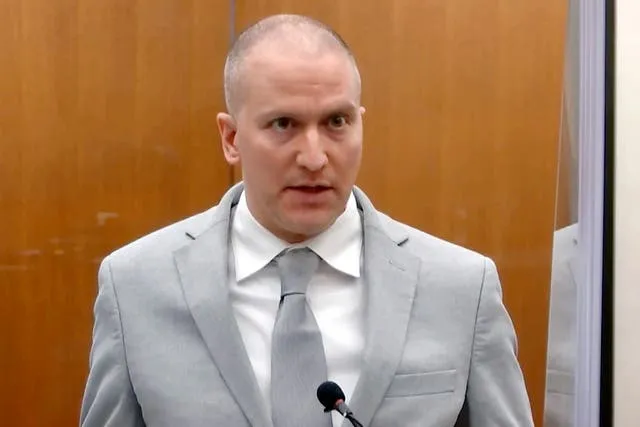Derek Chauvin, the former Minneapolis police officer convicted of murdering George Floyd, has been stabbed in prison and his family is struggling to get accurate information about his condition from federal prison officials. According to lawyer Gregory M Erickson, Chauvin’s family has been kept in the dark by the Federal Bureau of Prisons, despite repeated requests for updates. Erickson slammed the lack of transparency, saying that Chauvin’s family has been forced to assume he is in stable condition based on news accounts, with no official information provided.
The attack on Chauvin occurred at the Federal Correctional Institution in Tucson, Arizona, which has a history of security lapses and staffing shortages. A person familiar with the matter told the Associated Press that Chauvin was seriously injured in the stabbing, but further details were not disclosed due to the confidentiality agreement. On Saturday, a spokesperson for the Minnesota attorney general’s office confirmed that Chauvin is expected to survive, but it remains unclear what his current condition is or what treatment he is receiving.
Erickson expressed frustration and outrage at the lack of communication from the Bureau of Prisons, saying that it appears to be indicative of a poorly run facility. He believes that the lack of transparency is unacceptable and that Chauvin’s family and attorneys have hit a wall in trying to obtain information. As an outsider, Erickson views the situation as completely outrageous, and he is calling for more accountability and transparency from the prison system.

Derek Chauvin (Via Derek Chauvin/Twitter)
The stabbing incident has raised concerns about the safety and well-being of Chauvin, as well as the ability of the Federal Bureau of Prisons to provide adequate care and protection to its inmates. Chauvin, 47, was originally sentenced to a maximum-security Minnesota state prison in 2022, where he was serving a 22-and-a-half-year sentence for second-degree murder and a 21-year federal sentence for violating Floyd’s civil rights. In August 2022, he was transferred to the Federal Correctional Institution in Tucson to serve his federal sentence simultaneously with his state sentence.
The incident has sparked debate about the treatment of prisoners and the need for greater transparency and accountability in the prison system. As Chauvin’s family struggles to get accurate information about his condition, many are left wondering whether the lack of communication is a deliberate attempt to keep the truth hidden or simply a reflection of the poor management and oversight of the facility. Whatever the reason, it is clear that the situation is unacceptable and that something needs to be done to ensure that prisoners and their families are treated with dignity and respect.
